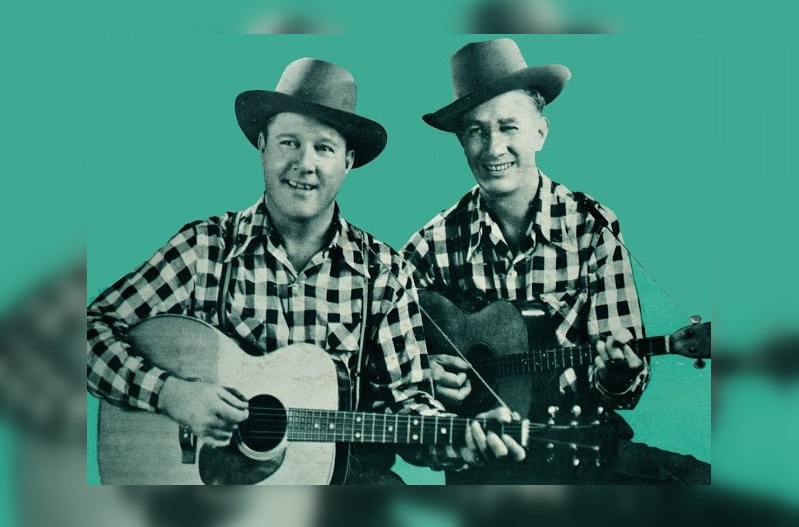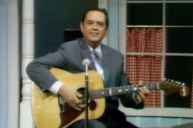[dropcap]I[/dropcap]f you only credit the Louvin Brothers with pioneering the tight sibling harmonies that made the Everly Brothers famous, you're skipping an important country music and rock 'n' roll building block in Charlie and Ira Louvin's home state heroes, the Delmore Brothers.
Alton and Rabon Delmore hailed from Elkmont, Alabama—a small town in the same Sand Mountain region that was also the birthplace of the Louvins, the Maddox Brothers and Rose and the band Alabama. Such harmonizing, family-focused groups grew up in a part of the Bible Belt where shape-note singings and regular church attendance inspired a love of sentimental songs and soul-stirring hymns. In the Delmore Brothers' case, some of these same lessons came at home from their gospel songwriter mother, Mary.
With two soft, interlocking voices and two guitars, including a four-string tenor guitar, the Delmore Brothers became major label recording artists in 1931 with the Columbia Records release "I've Got the Kansas City Blues," with future signature tune "Alabama Lullaby" on the flip side. Within two years, the band began a five-year run as one of the most popular acts to regularly appear on the Grand Ole Opry.
A 1938 dispute with Opry management left the brothers jumping from radio market to radio market before finding success in Cincinnati. While in Cincinnati, Alton formed an influential gospel quartet named the Brown's Ferry Four, featuring himself, Rabon, Merle Travis and Grandpa Jones. Such a stacked lineup deserves mention in any supergroup discussions sparked by the Highwomen.
In the 1940s, the Delmores recorded a couple of songs for King Records that impacted the future growth of rock music. "Freight Train Boogie" (1946) predicted rootsy blues-rock while the better-known "Blues Stay Away From Me" (1949) provided cover song material for everyone from Doc Watson to Gene Vincent. That rich period of recordings often teamed the brothers with collaborators, including harmonica player Wayne Raney.
The duo's run ended when Rabon died from lung cancer on Dec. 4, 1962, just one day after his 36th birthday. Alton, who's songwriting credits included future standard "Brown's Ferry Blues," would suffer a heart attack and lose more loved ones in the coming years. He, too, died at a young age on June 8, 1964.
Despite failing to reach widespread fame in their lifetimes, the Delmore Brothers helped shape the sound of country music by replacing the shouting on early old-time and hillbilly recordings with smoother, gentler harmony singing that'd soon spread from the church house to the honky-tonks.
Now Watch: 5 Things You Didn't Know About Patsy Cline




